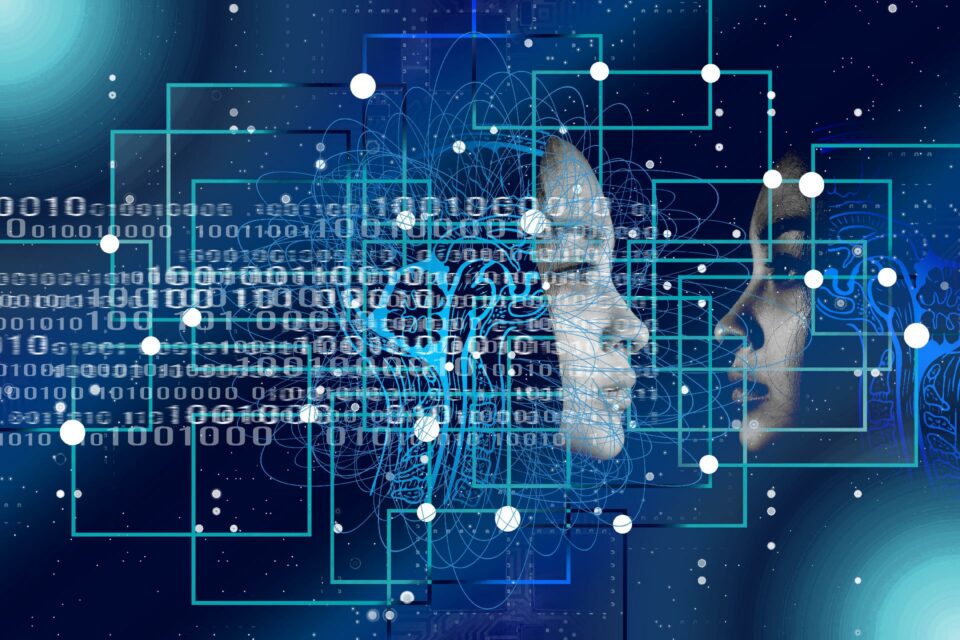How Does Game Theory Improve Machine Learning?
You may have heard the term game theory but have no idea what it is and aims to achieve. An increasingly important scientific tool, game theory studies interactive decision-making. It calculates the outcome of each participant based on the actions they may take. It is worth pointing out it does not only focus on gaming but can have applications in other areas.
In fact, that’s what makes game theory unique amongst scientific theories, its uses across potential applications. The fundamentals of game theory function across a broad set of activities, such as business, law, science, social interaction, and of course sport. It has also deeply impacted tech, especially in relation to machine learning artificial intelligence.
And that’s where this article comes in. Below we will discuss how game theory has become important in modern tech and how it has game-changing potential, for better or for worse.
What Exactly Is Game Theory?
Imagine you are playing a game against multiple opponents. A lot of decision making is involved in a successful game, such as the choice of other players, building a strategy, making choices, and more. Furthermore, you must also accept that your opponents are also doing the same, so you try to take their thinking and weave it into your own.
So, thinking about thinking is the core of game theory. The problem is, that’s a fairly complex concept for a person to grasp, especially if you want to translate it into a successful strategy. Luckily, there is a way to study and characterize this concept and it has become an important science… game theory.
Let’s be clear for those who may be having doubts, game theory is not a pseudo-science. The basic ideas that form game theory were underway in the 1920s with a book by John von Neumann and Oskar Morgenstern. However, the foundations and building work of the theory came together with John Nash, who started to realize how the idea could permeate into other areas. This was highlighted in the movie A Beautiful Mind starring Russell Crowe.
Tech Applications for Game Theory
In tech, game theory has played an increasingly pivotal role in the development of several machine learning-driven tools. Game theory and computer science have grown together, so it makes sense the scientific study is becoming rooted within machine learning. Game environments are an excellent training tool for AI and is also vital in a multi-AI situation where different machine learning models work together/compete to reach the same target goal.
Below are some ways that game theory-driven machine learning solutions have enhanced our technology and real-world experiences:
Commute Estimation
- Google Maps: By leveraging GPS in conjunction with location capabilities on smartphones, machine learning helps Google Maps make a multitude of small but important adjustments in real-time. From shifting traffic, making changes to routes, and organizing data to pass to the user, commute time can be calculated and reduced.
- Riding Apps: Applications like Lyft and Uber tap into machine learning solutions to minimize the time issues often associated with travel. For example, the apps detail how long a trip will take, allow multiple routes, and allow ridesharing to spread the cost and promote commute efficiency.
- Commercial Auto Pilot: AI is what we use to keep ourselves in the sky, or at least to make a pilot’s job less demanding. Autopilot can now handle just about every part of the flight experience, aside from landing and taking off.
Email Intelligence
- Smart Replies: Email services are increasingly looking to help you compose messages more efficiently. For example, Gmail will prompt with auto-complete phrases when you start to type. Machine learning is used for this ability and is constantly making changes to ensure auto-complete prompts can remain bespoke to your needs.
- Classification: Gmail also uses AI to automatically understand email contents and categorize received emails across different inboxes (Primary, Promotions, Update, and Social).
Personal Finance
- Credit Decisions: In the old days, you would have to wait for days and receive a phone call to find out if a credit application is successful. These days AI is doing the heavy lifting allowing online applications that can be returned in an instant. Machine learning uses the concepts of game theory to understand and assess individual applications, which may differ based on credit history and risk assessment.
- Mobile Check Deposit: Mobile banking allows customers to get more of their banking needs met online without needing to visit a bank. This includes the development of AI chatbots that can handle many basic banking queries and connects users with a real agent if needed.
Social Networking
- Facial Recognition for Photos: One of the most controversial developments in machine learning is facial recognition software. As the name suggests, this tech can detect faces and put the information to the face. On Facebook, the technology is more innocent and is used to recognize contacts to tag when you upload a photo.
- Filters: Did you know Snapchat Lenses that add filters to your face in real-time when taking selfies are an excellent adaptation of machine learning? AI is used to track facial activity and apply animated filters over the face.
Personal Smart Assistants
- Smart assistants have become immensely powerful and can now be used to control many aspects of our lives. AI provides the ability to take voice commands, make actions, and issue responses in real-time. Google Home and Amazon’s Alexa are the two-leading consumer-facing smart assistants and are becoming essential companions in a world that is more connected.

How It Could All Go Wrong
I want to tread carefully and don’t want to delve into the absurd and say machine learning is pointing us on the course for a Terminator of Matrix rise of the machines. Despite that, there’s no doubt that AI has the potential to cause us numerous issues and potentially compromise our freedom.
We are on a course where AI will be able to think for itself and perform tasks without human input. This could mean a machine learning model designed to leverage game theory to reach the best goals and outcomes will see humans as an inefficient part of the puzzle and seek to remove us. It may sound alarmist, but it is something significant-tech minds have voiced concerns about, such as Elon Musk and Bill Gates. It is a long way off and one must presume some failsafe’s will be added to prevent such autonomous dictatorial thinking, but it’s a concern, nonetheless.
Of course, I don’t have the sway of Gates or Musk, but I share their worry. AI is a life-changing technology that could truly enhance the human experience and even change how we behave, interact, work, and evolve. However, I also think it is extremely dangerous and the chance for something to go wrong is higher than any tech development since the splitting of the atom.
In the meantime, the dangers surrounding machine learning are more mainstream. Among them is the growing number of cybersecurity threats that are targeting AI tools and apps that rely on machine learning. As devices and platforms become more connected, these threats will become more real and dangerous.


